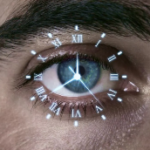Eyes can be a window into your overall health.

Q. My eye doctor told me I may have diabetes. Is it possible to know if I have diabetes with an eye exam?
A. Yes, your eyes can be a window into your health.
It’s not uncommon that our eye doctors at Ophthalmic Consultants of the Capital Region inform a patient of a health problem before they have any noticeable symptoms. There are many health conditions a dilated eye exam can reveal such as diabetes, hypertension, thyroid conditions, cancer, and multiple sclerosis.
During a comprehensive eye exam, your eye doctor will typically dilate your pupils in order to check the retina, optic nerve, and blood vessels in the back of the eye. This allows the eye doctor to see any changes in eye health.
Diabetes
Diabetes can damage blood vessels in the retina (diabetic retinopathy). Your eye doctor will check for retinal vascular changes and blood vessel hemorrhages in your eyes during a dilated eye exam.
Hypertension
The small blood vessels in the retina can be very delicate. High blood pressure can cause them to narrow and thicken, leading to damaged tissue and hemorrhages. High blood pressure can also damage the macula and optic nerve.
Thyroid
During an eye exam, if a patient’s eyes appear as though they are bulging out it could be a sign of an overactive thyroid gland (Graves’ Disease).
Cancer
Changes in the field of vision, improper pupil dilation, and droopy eyelids could indicate a tumor in the brain or neck.
Multiple Sclerosis
One of the most common early symptoms of multiple sclerosis is sudden vision loss due to inflammation of the optic nerve.
An eye exam may save your life.
Finding health issues early through an eye exam can make all the difference in the outcome. Be sure to schedule your annual comprehensive eye exam today.

